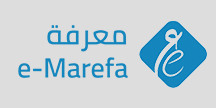You Scratch my Back, and I'll Scratch Yours: Feedback and Recommendation on Freelance Translators Recruitment
DOI:
https://doi.org/10.21271/zjhs.28.3.17Keywords:
Feedback, Freelance translator, Ethnographic study, workplace observation, crowdsourcing.Abstract
Professional translation is now mostly conducted in virtual teams, or production networks, where freelance translators and language service providers (LSPs) communicate via increasingly computerized means. This study examined how feedback are left on profiles and specifically to find extent to which these feedbacks have been manipulated by having a prior agreement with each other (the translation agency and freelancer translator). This study was a multiple-case study since it covered Upwork and Proz.com, and an ethnographic was employed since a cultural context was used for the identification of the websites. Proz.com and Upwork were chosen to investigate and collect the data as both are the most effective websites for freelancers among all other workplace websites. Unstructured observation and semi-structured interviews were carried out for the data collection. The results showed that the vast majority of the feedback on profiles have been biased. In most cases, a settlement between the translation agency and freelancers was made before leaving the feedback. In other words, the feedback should not be depended on when a freelance translator needs to work for a company and vice versa.
References
-Annells, M. (1996). Grounded theory method: Philosophical perspectives, paradigm of inquiry, and postmodernism. Qualitative health research, 6(3), 379-393.
-Aral, S., Dellarocas, C., & Godes, D. (2013). Introduction to the special issue—social media and business transformation: a framework for research. Information systems research, 24(1), 3-13.
-Aswani, R., Kar, A. K., Ilavarasan, P. V., & Dwivedi, Y. K. (2018). Search engine marketing is not all gold: Insights from Twitter and SEOClerks. International Journal of Information Management, 38(1), 107-116.
-Bakul, H. I. (2016). Translation Technologies: A Dilemma between Translation Industry and Academia. Online Submission, 4(4), 100-108.
-Chatterjee, S., & Kar, A. K. (2020). Why do small and medium enterprises use social media marketing and what is the impact: Empirical insights from India. International Journal of Information Management, 53, 102103.
-Chiang, J. K.-H., & Suen, H.-Y. (2015). Self-presentation and hiring recommendations in online communities: Lessons from LinkedIn. Computers in Human Behavior, 48, 516-524.
-Desjardins, R. (2017). Online Social Media (OSM) and Translation. In Translation and Social Media (pp. 13-33): Springer.
-Diefenhardt, F. (2021). Entrepreneurs of the Profile: The Labor of Reputation on Upwork. Available at SSRN 4134653.
-Foong, E., Kim, J. O., Dontcheva, M., & Gerber, E. M. (2021). CrowdFolio: Understanding How Holistic and Decomposed Workflows Influence Feedback on Online Portfolios. Proceedings of the ACM on Human-Computer Interaction, 5(CSCW1), 1-31.
-Horton, J., & Golden, J. (2015). Reputation inflation in an online marketplace. New York I, 1.
-Jarrahi, M. H., & Sawyer, S. (2012). Social networking technologies and organizational knowledge sharing as a sociotechnical ecology. Paper presented at the Proceedings of the ACM 2012 conference on computer supported cooperative work companion.
-Jarrahi, M. H., Sutherland, W., Nelson, S. B., & Sawyer, S. (2020). Platformic management, boundary resources for gig work, and worker autonomy. Computer supported cooperative work (CSCW), 29(1), 153-189.
-Jiménez-Crespo, M. A. (2021). The impact of crowdsourcing and online collaboration in professional translation: Charting the future of translation? Babel, 67(4), 395-417.
-King, R. A., Racherla, P., & Bush, V. D. (2014). What we know and don't know about online word-of-mouth: A review and synthesis of the literature. Journal of interactive marketing, 28(3), 167-183.
-Kushner, S. (2013). The freelance translation machine: Algorithmic culture and the invisible industry. New Media & Society, 15(8), 1241-1258.
-Leftheriotis, I., & Giannakos, M. N. (2014). Using social media for work: Losing your time or improving your work? Computers in Human Behavior, 31, 134-142.
-Lin, I. Y., & Mattila, A. S. (2021). The value of service robots from the hotel guest’s perspective: a mixed-method approach. International Journal of Hospitality Management, 94, 102876.
-Mansor, I. (2021). Explicitation in the intercultural communication of technical culture in Arabic-Malay translation of Rihlat Ibn Battuta. Journal of Intercultural Communication Research, 50(6), 556-570.
-McCarthy, J. M., Bauer, T. N., Truxillo, D. M., Anderson, N. R., Costa, A. C., & Ahmed, S. M. (2017). Applicant perspectives during selection: A review addressing “So what?,”“What’s new?,” and “Where to next?”. Journal of Management, 43(6), 1693-1725.
-McDonald, J. K., & Michela, E. (2019). The design critique and the moral goods of studio pedagogy. Design Studies, 62, 1-35.
-Mertens, D. M. (2019). Research and evaluation in education and psychology: Integrating diversity with quantitative, qualitative, and mixed methods: Sage publications.
-Omar, A., Ethleb, H., & Gomaa, Y. A. (2020). The Impact of Online Social Media on Translation Pedagogy and Industry. Paper presented at the 2020 Sixth International Conference on e-Learning (econf).
-Sakamoto, A., & Foedisch, M. (2017). “No news is good news?”: The role of feedback in the virtual-team-style translation production network. Translation Spaces, 6(2), 333-352.
-Siriwat, P., & Nijman, V. (2020). Wildlife trade shifts from brick-and-mortar markets to virtual marketplaces: A case study of birds of prey trade in Thailand. Journal of Asia-Pacific Biodiversity, 13(3), 454-461.
-Tifferet, S., & Vilnai-Yavetz, I. (2018). Self-presentation in LinkedIn portraits: common features, gender, and occupational differences. Computers in Human Behavior, 80, 33-48.
-Vasileiou, K., Barnett, J., Thorpe, S., & Young, T. (2018). Characterising and justifying sample size sufficiency in interview-based studies: systematic analysis of qualitative health research over a 15-year period. BMC medical research methodology, 18(1), 1-18.
-Washbourne, K. (2014). Beyond error marking: written corrective feedback for a dialogic pedagogy in translator training. The Interpreter and Translator Trainer, 8(2), 240-256.
-Zetzsche, J. (2019). Freelance translators’ perspectives. In The Routledge handbook of translation and technology (pp. 166-182): Routledge.

Downloads
Published
How to Cite
Issue
Section
License
Copyright (c) 2024 Hemn Mohammed Ali Mahmood

This work is licensed under a Creative Commons Attribution 4.0 International License.
Except where otherwise noted, content on this site is licenced
under a Creative Commons Attribution License 4.0 (CC BY- 4.0)









